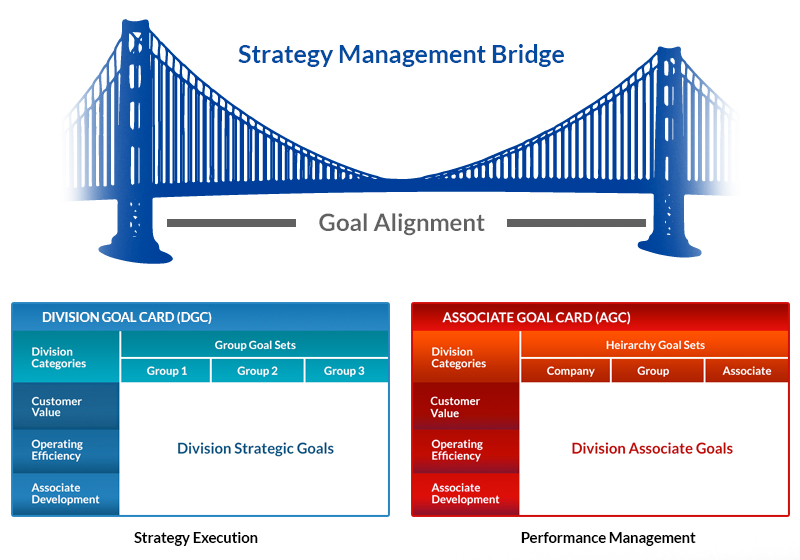The Importance Of Middle Managers: Bridging The Gap Between Leadership And Workforce

Table of Contents
- Middle Managers as Communication Hubs
- Downward Communication
- Upward Communication
- Middle Managers as Mentors and Coaches
- Performance Management
- Team Building and Motivation
- Middle Managers as Problem Solvers and Decision Makers
- Problem Identification and Analysis
- Decision Making and Delegation
- The Importance of Investing in Middle Management Development
- Conclusion
Middle Managers as Communication Hubs
Effective communication is paramount for organizational success. Middle managers act as a critical communication conduit, translating high-level strategic goals into actionable tasks and relaying feedback from the workforce to senior leadership. They are the vital link ensuring information flows smoothly in both directions. Poor communication from middle management can lead to decreased productivity, low morale, and ultimately, failure to achieve organizational goals.
Downward Communication
Middle managers are responsible for translating complex strategic plans into clear, understandable directives for their teams. This involves:
- Translating complex strategies: Breaking down complex, high-level goals into manageable tasks and projects that individual team members can understand and work towards.
- Ensuring consistent messaging: Maintaining consistent communication across different teams and departments, avoiding confusion and conflicting instructions.
- Providing regular updates and progress reports: Keeping teams informed about progress, challenges, and any changes to plans or priorities. Regular updates empower teams and build trust.
- Clarifying expectations and deadlines: Setting clear expectations for performance, quality, and deadlines, ensuring everyone is on the same page.
Upward Communication
Equally important is the upward flow of communication. Middle managers act as the voice of their teams, relaying crucial information to senior leadership. This includes:
- Relaying employee feedback, concerns, and suggestions: Acting as a bridge between employees and senior management, providing valuable insights into team morale and productivity.
- Identifying potential problems and risks early on: Proactively identifying potential issues before they escalate into larger problems, allowing for timely intervention.
- Providing insights into team morale and productivity: Offering valuable real-time feedback on team dynamics, performance levels, and potential obstacles.
- Advocating for their teams' needs and resources: Championing their teams' needs and ensuring they have the resources and support necessary to succeed.
Middle Managers as Mentors and Coaches
Beyond communication, middle managers play a crucial role in developing and mentoring their teams. They provide guidance, support, and training to improve individual and team performance. This mentorship contributes significantly to employee retention and overall team success.
Performance Management
Effective middle managers are skilled in performance management, including:
- Conducting regular performance reviews: Providing constructive feedback, both positive and critical, to help employees improve their performance.
- Identifying employee strengths and weaknesses: Helping employees identify areas for growth and development, tailoring support accordingly.
- Creating development plans: Working with employees to create personalized development plans to enhance skills and capabilities, facilitating career progression.
- Providing opportunities for growth and advancement: Identifying and creating opportunities for employees to take on new challenges and develop their skills.
Team Building and Motivation
Middle managers are responsible for fostering a positive and productive team environment:
- Fostering a positive and collaborative work environment: Creating a supportive atmosphere where team members feel valued, respected, and motivated.
- Recognizing and rewarding employee contributions: Acknowledging achievements, both big and small, to boost morale and motivation.
- Addressing conflicts and resolving issues effectively: Mediating disagreements and resolving conflicts fairly and efficiently, minimizing disruption to productivity.
- Boosting team morale and motivation: Creating a culture of appreciation and encouragement, inspiring teams to achieve their goals.
Middle Managers as Problem Solvers and Decision Makers
Middle managers are often the first line of defense when problems arise. Their ability to quickly identify, analyze, and resolve issues is critical for maintaining operational efficiency. Their problem-solving skills directly impact the organization's bottom line.
Problem Identification and Analysis
Proactive problem-solving is a key skill for middle managers:
- Monitoring team performance and identifying areas for improvement: Regularly reviewing team performance, identifying bottlenecks, and areas requiring attention.
- Analyzing data and trends to identify potential problems: Using data-driven insights to predict and prevent potential issues before they arise.
- Proactively addressing issues before they escalate: Addressing minor issues promptly before they escalate into major problems, saving time and resources.
- Developing solutions to improve efficiency and productivity: Developing and implementing solutions to improve team processes and boost productivity.
Decision Making and Delegation
Middle managers frequently need to make timely decisions:
- Making timely and effective decisions based on available information: Making informed decisions based on available data and resources.
- Delegating tasks effectively to team members: Assigning tasks appropriately to team members, empowering them to take ownership.
- Empowering employees to take ownership of their work: Fostering a sense of responsibility and accountability among team members.
- Monitoring progress and providing support as needed: Providing ongoing support and guidance to ensure tasks are completed effectively.
The Importance of Investing in Middle Management Development
Organizations must invest in training and development programs to equip their middle managers with the necessary skills and knowledge to excel in their roles. This investment pays off with increased productivity, improved employee morale, and stronger organizational performance. This includes training on various aspects such as: leadership styles, communication strategies, conflict resolution, performance management techniques, and strategic thinking.
Conclusion
In conclusion, the importance of middle managers cannot be overstated. They are essential for bridging the gap between leadership and the workforce, acting as communication hubs, mentors, problem solvers, and decision makers. Investing in the development and support of middle managers is a crucial strategy for any organization seeking to improve performance, boost employee morale, and achieve its strategic goals. By recognizing and nurturing the vital contributions of their middle management team, organizations can unlock significant potential and build a truly high-performing workforce. Embrace the power of effective middle managers – they are the key to unlocking your organization's full potential. Invest in your middle managers and watch your organization thrive.

 Ou Acheter Le Samsung Galaxy S25 128 Go Au Meilleur Prix 648 E
Ou Acheter Le Samsung Galaxy S25 128 Go Au Meilleur Prix 648 E
 Welcome To Wrexham Exploring The Towns History And Culture
Welcome To Wrexham Exploring The Towns History And Culture
 Paul Skenes Pittsburgh Pirates Opening Day Starter
Paul Skenes Pittsburgh Pirates Opening Day Starter
 Ronaldo Nun Portekiz Kampindaki Sasirtici Anlar Fenerbahce Baglantisi
Ronaldo Nun Portekiz Kampindaki Sasirtici Anlar Fenerbahce Baglantisi
 Dubon Arraez Collision Details Of The On Field Incident
Dubon Arraez Collision Details Of The On Field Incident
